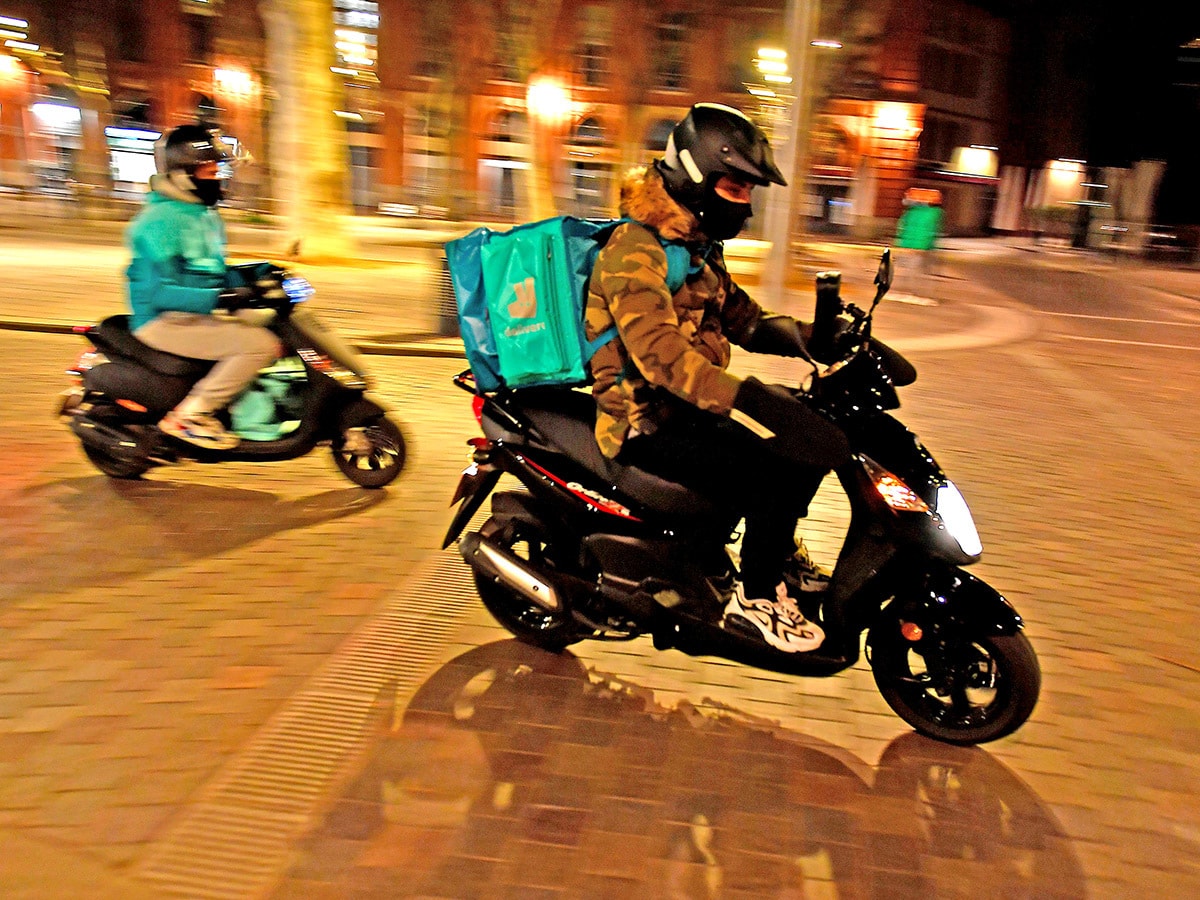Deliveroo’s IPO date might not be confirmed, but that hasn’t stopped the hype. Adding to general excitement is the $7bn valuation that followed its latest round of funding in mid-January. Deliveroo reached this jaw-dropping valuation, more than double its 2019 value, by raising £180m from existing investors, according to the Financial Times.
“The online food delivery market is nascent and underpenetrated. We believe Deliveroo has the potential to become a much bigger company over time,” Henry Ellenbogen, managing partner and chief investment officer at Durable Capital, told the paper.
"We believe Deliveroo has the potential to become a much bigger company over time" - Henry Ellenbogen, Durable Capital
Deliveroo has not yet revealed when it plans to list, but the FT reports its public debut could come as soon as April. The big question is whether it lists in London or New York. In preparation, the delivery service added Next [NXT.L] chief executive Simon Wolfson to its board last week — Wolfson’s first external appointment in his three decades at the retailer.
Why should investors care about Deliveroo’s IPO?
Deliveroo, along with rivals Uber Eats [UBER] and Just Eat [JET.L], has seen business thrive during the pandemic, as thousands of closed restaurants went online to make ends meet.
In the month of November last year, as the UK entered its second lockdown, Deliveroo said it added 1,400 new restaurants. Total restaurants on the Deliveroo app now number circa 140,000, with 46,000 new restaurants listed in 2020. Just Eat, the market leader by volume, reported 54.9 million delivery orders in the fourth quarter, up 163% from the 20.9 million seen in the same quarter last year.
54.9million
Number of Deliveroo orders in Q4
Uber's delivery service Uber Eats effectively offset revenue lost from its ride-hailing business. In the third quarter of last year, Uber Eats ate up $8.5bn in revenue, a 134% increase in business and easily topping the $5.9bn from rides.
Yet selling food via these providers isn’t cheap for businesses. According to the FT, the platform can charge up to 30% commission. That could see restaurants seeking alternatives and adding further disruption into the market.
What could Deliveroo’s IPO look like?
The mooted listing plays into the wider IPO bonanza that has supercharged the markets of late, much of it driven by retail investors. When Airbnb [ABNB] recently listed, its share price closed at $144.71, well ahead of its initial $68 pricing. The danger is that, with so much euphoria surrounding tech and ecommerce stocks, retail investors are now living in a bubble that will eventually pop.
Perhaps the best comparison to draw is DoorDash’s [DASH] IPO in December. When the US-based delivery company debuted, its share price shot up 86% to total a market value of $60bn — something that Tony Xu, DoorDash CEO, described as “surreal”.
The overall frenzy could now be getting in the way of clear-sighted analysis of the fundamentals. While DoorDash represents 50% of total order value in the US, according to Edison Trends data, it made a net loss of $667m last year in its most recent full year results.
50%
DoorDash's share of total order value in the US
Going public for Deliveroo will also mean being transparent about revenues and profits — or its lack thereof. In 2019, Deliveroo’s losses increased to £317.7m, despite revenues increasing $62% to £771.8m. The company has said that, in the second and third quarters of 2020, it managed to turn an operating profit in the majority of its markets — something that will be subject to greater scrutiny once it starts publishing investor reports.
Inevitably, the euphoria surrounding Deliveroo’s IPO will die down as some investors move to the next bright thing. Since listing, DoorDash is down 3%, while Airbnb’s share price is up over 29% (as of 28 January’s close). Solid gains, but anyone expecting a continued surge upwards needs to do their research, with both stocks experiencing plenty of volatility.
Deliveroo’s IPO may well trigger another buying frenzy, but investors will need to do their due diligence before ordering.
Disclaimer Past performance is not a reliable indicator of future results.
CMC Markets is an execution-only service provider. The material (whether or not it states any opinions) is for general information purposes only, and does not take into account your personal circumstances or objectives. Nothing in this material is (or should be considered to be) financial, investment or other advice on which reliance should be placed. No opinion given in the material constitutes a recommendation by CMC Markets or the author that any particular investment, security, transaction or investment strategy is suitable for any specific person.
The material has not been prepared in accordance with legal requirements designed to promote the independence of investment research. Although we are not specifically prevented from dealing before providing this material, we do not seek to take advantage of the material prior to its dissemination.
CMC Markets does not endorse or offer opinion on the trading strategies used by the author. Their trading strategies do not guarantee any return and CMC Markets shall not be held responsible for any loss that you may incur, either directly or indirectly, arising from any investment based on any information contained herein.
*Tax treatment depends on individual circumstances and can change or may differ in a jurisdiction other than the UK.
Continue reading for FREE
- Includes free newsletter updates, unsubscribe anytime. Privacy policy





